Soon after Doraville's police chief, Lt. Col. John King, arrived with his soldiers in Iraq's treacherous Triangle of Death last summer, they set about the civilian task of nation-building.
Within months, the Georgia Army National Guard's 48th Brigade Combat Team began earning trust from the residents in Mahmudiyah, a small, rural town 45 minutes south of Baghdad that had become notorious for insurgent attacks and criminal activity.
The citizen soldiers knew that the key to their success would be their ability to nurture relationships with the Iraqi people.
"They were telling us where the bad guys were, where the IEDs [improvised explosive devices, or makeshift bombs] were put in so that we could destroy them instead of hitting them," said Brig. Gen. Stewart Rodeheaver, commander of the 48th Brigade.
But, after just five months on the job, the Army replaced the Georgians in Mahmudiyah and southwest Baghdad.
Brigade officers found themselves handing over control to the 101st Airborne Division, the storied regular Army unit out of Fort Campbell, Ky., that has a well-respected history dating back to the beaches of Normandy.
What happened after the 101st Airborne units moved in, however, has raised questions among military analysts about what type of combat unit is best suited for Iraq.
The 48th Brigade's 1st Battalion of the 108th Armor Regiment, a unit that had roughly 800 soldiers, suffered six deaths in the Mahmudiyah area -- three of them from non-combat vehicle accidents. By comparison, the two 101st battalions of about 1,400 soldiers patrolling the same area have been hit hard, losing 35 soldiers in eight months...
It would be impossible to pinpoint exactly why violence has escalated in Mahmudiyah since the 48th's departure. Both the U.S. military and the insurgents are known to commonly change tactics in Iraq's war of one-upmanship. And in recent months, spiraling sectarian violence has contributed to the chaos.
But as the United States tries to shift more of the burden for Iraq's defense onto the Iraqi army and police, some have questioned whether reservists -- part-time soldiers who are generally older and bring more life experience to their military jobs -- are more appropriate than their regular military counterparts for a counterinsurgency mission.
"I think by the nature of the beast, most National Guard forces are better in what actually needs to be done," said Piers Wood, a retired lieutenant colonel whose 28 years in the Army included duty in the Vietnam War...
Military officials won't say why the 48th Brigade was replaced less than halfway into its deployment. But there was concern within the National Guard and Congress that citizen soldiers were bearing too much of the load in Iraq.
At one point last year, U.S. troops in Iraq drew 40 percent of their numbers from the National Guard and Army Reserve. The Department of Defense estimates that now has dropped to 20 percent.
Wood said the decreasing dependence on reservists is counterintuitive. They believe aggressive operations by combat-centric soldiers have escalated a primarily political battle that requires a vast amount of noncombat skills.
"In a counterinsurgency, aggression just gets you deeper in trouble," Wood said. "You are going to create more enemies than you are able to kill."
U.S. military officials are developing a
new counterinsurgency manual, the first in more than 20 years, designed to aid troops fighting in Iraq and Afghanistan.
A draft copy of the manual was posted recently on the Web site of the Federation of American Scientists, an organization that researches issues of global security and nuclear arms control. It appears to make the case that Iraq and Afghanistan require more nation-building skills to support the local government than combat skills.
Co-written by
Lt. Gen. David Petraeus, who commanded the 101st Airborne on the initial invasion of Iraq and later led the training of Iraqi security forces, the manual indicates the U.S. military has forgotten the counterinsurgency techniques it learned in Vietnam.
In one section titled The More Force Used, the Less Effective It Is, the co-authors write, "The more force applied, the greater the chance of collateral damage and mistakes. It also increases the opportunity for insurgent propaganda to portray lethal military activities as brutal. The precise and discriminate use of force also strengthens the rule of law that needs to be established."...





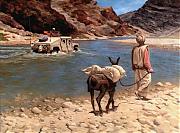
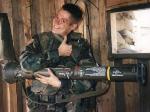
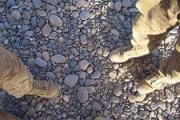
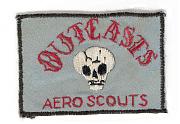


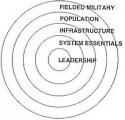

Bookmarks